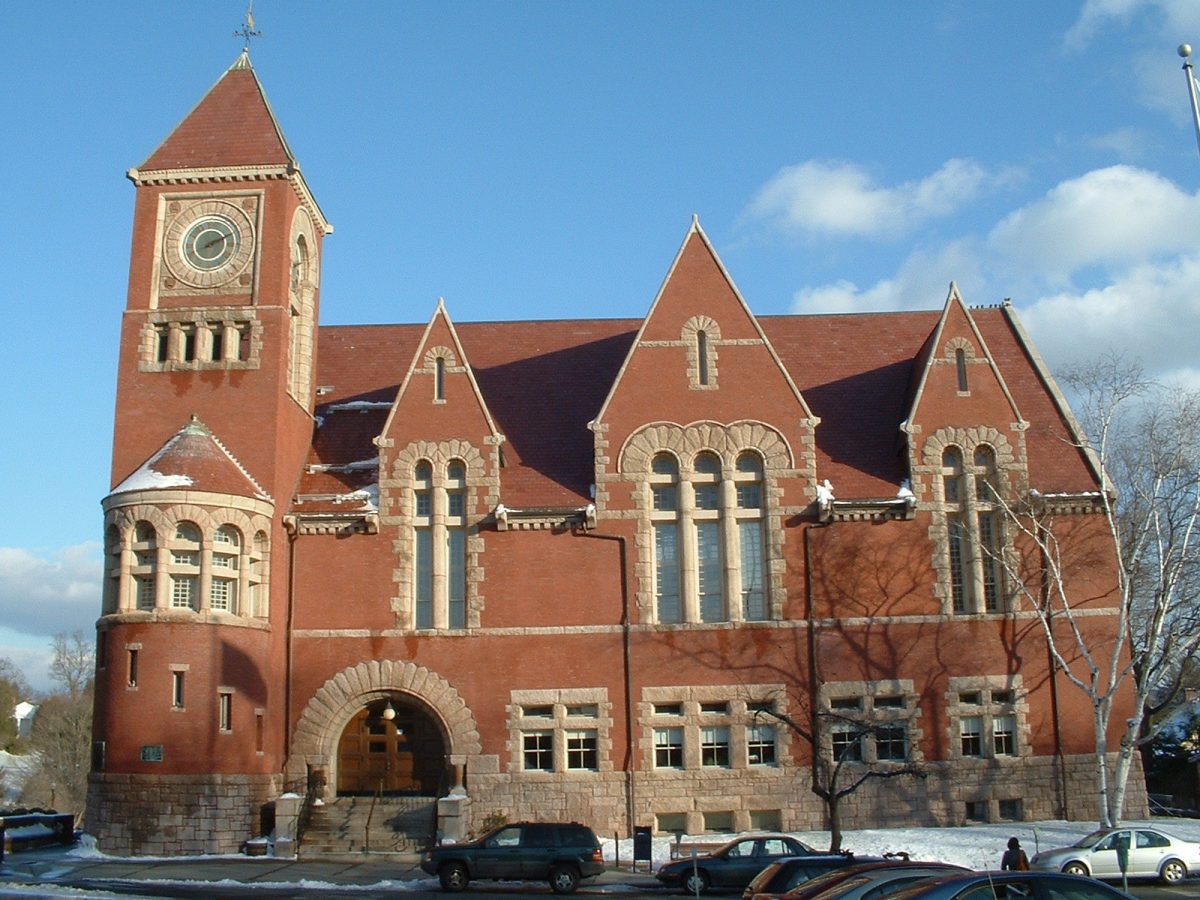Only 16 miles from the University of Massachusetts campus, nestled in the Pioneer Valley, sits one of the state’s biggest contributers to global warming. The Mt. Tom Power Plant in Holyoke emits over a million tons of carbon dioxide each year by burning coal, according to some estimates. Students and professors are fighting to eliminate the use of coal energy in Massachusetts to save the state’s environment from further damage.
The group Students for a Just and Stable Future (SFJSF) is leading a grassroots movement on 26 university campuses to promote clean energy in Massachusetts and the United States.
“Students for a Just and Stable Future is asking for nothing less than 100 percent clean energy in 10 years for Massachusetts,” said Katie MacDonald, an environmental science major and co-director of the UMass chapter of SFJSF.
Coal is one of the leading sources of energy in Massachusetts. In 2008, burning coal provided 24.5 percent of Massachusetts’ electricity, and the state spent $252 million to import coal, according to the American Coal Foundation. But burning coal for electricity is a leading cause of smog, acid rain and global warming. Students, politicians and scientists are pushing to cut the dependency on coal in favor of what they say are more renewable and cleaner energy sources.
Retired University of Massachusetts professor Dick Stein is working with the Massachusetts Coalition for Healthy Communities to stop coal burning at Mt. Tom and convert it to a natural gas power plant.
“We have to do something,” said Stein. “If we don’t do something, life is going to be a lot tougher.”
A major obstacle to eliminating coal burning at Mt. Tom is the company that operates the plant, GDF Suez.
GDF Suez is the world’s second-largest independent power producer and its major shareholder is the French government. France has pushed for cleaner energy by using nuclear power, but it has said little about GDF’s coal burning in power plants in the United States.
Stein is still waiting for a response from the French government or GDF Suez to a petition he sent them in October.
Stein spoke about his efforts at a lecture by Kevin Knobloch, the president of the Union of Concerned Scientists, at UMass in October. Knobloch, a UMass alumnus, urged students about the increasing importance of climate change.
“There is an overwhelming consensus among credentialed climate scientists the world over that global warming is well underway,” said Knobloch. “The burning of fossil fuels by humans is the primary driver, and we must act quickly to prevent catastrophe.”
One short-term alternative to traditional coal burning is “clean coal,” using a carbon sequestration method which would bury the CO2 emissions from coal burning. Stein doesn’t believe this is a viable alternative to renewable energy, however.
“It really isn’t clean because you’re not getting rid of the carbon dioxide,” said Stein. “You’re just burying it and creating a problem for your kids to worry about.”
If the power plant at Mt. Tom were to stop burning coal, a temporary solution would be to burn natural gas, according to Stein. Recently, the UMass power plant converted four of its coal burning boilers to natural gas, which has reduced its emissions output by a factor of two, said Stein. He said this is a good model for coal burning plants like Mt. Tom to follow for the time being.
“I think we’re going to have to do temporary things for the next 10 to 20 years until the technology advances,” said Stein.
Cap and trade or a carbon tax could create more incentive for cleaner, renewable energy in the Commonwealth, he said.
MacDonald agreed and said that if coal were phased out in Massachusetts, it would encourage the growth of renewable energy sources like solar, wind and geothermal, which could provide clean electricity for the state.
A 2009 study titled “Energy Self-Reliant States” by the New Rules Project, an organization which seeks to build sustainable local economies, estimated Massachusetts could generate 50 percent of its electricity from local renewable energy sources.
As coal is a primary source of energy in the state, Stein and MacDonald acknowledged it will take a lot of support and legislative action to cut its use.
“Politicians are dependent on money from companies, so politicians want to keep them happy,” said Stein.
In 2009, SFJSF wrote a bill titled “An Act to Create a Repower Massachusetts Emergency Task Force” which would create a task force to decide how Massachusetts could achieve 100 percent clean energy by 2020.
Right now, SFJSF is working on an anti-coal initiative which the group hopes will be passed by the Massachusetts legislature. The initiative would begin phasing out coal by 2015, said MacDonald.
The group has also organized sleep-outs on university campuses across the state and on the Boston Common to show politicians that citizens believe climate change is an important issue and students want their voices heard.
As an activist, MacDonald said she feels education is one of the biggest obstacles clean energy implementation faces.
“I think that the majority of students don’t know what’s going on and don’t really care,” she said. “But it’s not their fault. I think UMass isn’t doing a good enough job educating people.”
In order to educate college students and the public about climate change, SFJSF hosts public events and rallies. The group cosponsored a conference at Wesleyan University in Connecticut on Nov. 19 to discuss strategies for putting a price on carbon emissions.
But MacDonald acknowledged that student activists can only do so much to promote clean energy in Massachusetts and around the country.
“As students, there’s only so much we can do to grow these sources of power. We need innovators and scientists to make [our goals] possible.”
Sarah Hardy can be reached at [email protected]


















